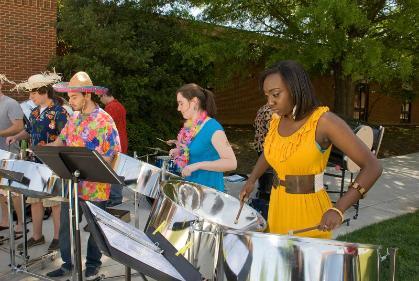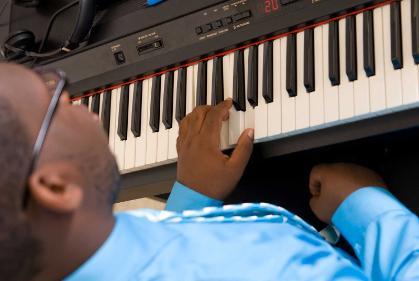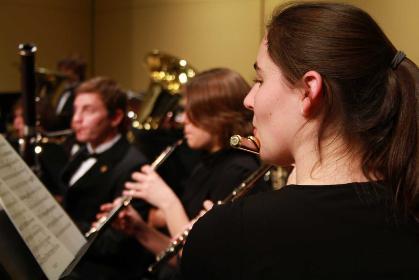

Music History
Minor
The Music History minor is open to non-music majors and offers an exploration into the history and cultural impact of different styles of music.
You’ll learn how music is notated on the page and will listen to and discriminate among styles ranging from world cultures to American popular music.
Choose the styles of music that most interest you!
Career Paths
A minor in Music History can lead to:
- Graduate studies in Musicology or Ethnomusicology
- Leadership roles in community arts organizations
- Informed use of music in teaching about history, culture, and expression
- Active support of arts organizations such as symphonies, community bands, and choirs
- Organization of and support for local, regional, and national concert series
Courses
You’ll take 18 theory and history credits in music and learn to recognize music notation, hear how composers design music to engage their listeners, and explore the intersections between music and culture.





-small-420x244.jpg)